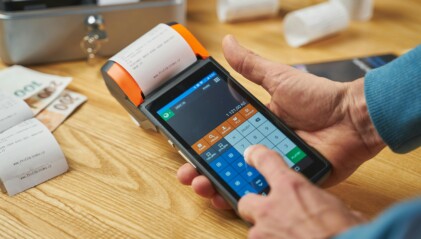What is import VAT?
The so-called Import Value Added Tax (“Einfuhrumsatzsteuer / EUSt” in Germany) is a tax levied by customs when goods from third countries subject to VAT are imported into the Federal Republic of Germany. The goods are not charged; in the importing country, the tax is incurred.
Import VAT is sometimes mistakenly referred to as VAT. Confusion can happen quickly, as the tax rate of the import VAT is based on the tax rate of the VAT. Nevertheless, the terms are not synonymous, and there are some subtleties.
How does import VAT differ from other levies, such as VAT?
The businessperson pays VAT to the tax office. But import VAT is levied by the German customs administration on the import of goods from third countries. It is a consumption tax and import VAT for businesses and private individuals.
What is the purpose of import VAT?
The import VAT ensures that goods do not reach the consumer untaxed. No tax is levied in the exporting country, but the tax is charged in the importing country. Import VAT is of great importance for tax revenues. In 2021 alone, German customs levied around 63 billion euros in import VAT.
New regulations since 1 July 2021
With the so-called VAT digital package, many new regulations have come into force since 1 July 2021.
Online merchants have to pay attention to numerous special features. Thus, the 22-euro exemption limit for goods imports was abolished. This means that, in principle, a declaration must be made for every import of goods from third countries. Even consignments with a value of less than EUR 22 are therefore no longer exempt from import VAT.
Major digital platforms and marketplaces had to adapt to the new EU regulations accordingly. However, with the Import-One-Stop-Shop (IOSS) there is (cf. § 18k UStG) a procedure intended to simplify the taxation process: For goods that are imported from a third country, have a material value of no more than EUR 150 and are sent to buyers who are not liable for VAT, online merchants can submit a tax return to a central office (Germany: Bundeszentralamt für Steuern (BZSt)) and declare the sales. Turnover declared under the IOSS is exempt from import VAT (cf. § 5 para. 1 no. 7 UStG).
Note
A special regulation is found in § 21a UStG in cases where the import of (non-excisable) goods with a value of up to EUR 150 is carried out by a service provider who does not participate in the IOSS procedure. These service providers may maintain a collective deferral account.
Important
Online marketplaces must comply with liability regulations since 1 July 2021 if the online merchant does not pay VAT properly (§ 25e UStG).
Private individuals must also consider import VAT when ordering online from third countries. Goods with a material value of up to EUR 150 are duty-free, but not exempt from import VAT. In practice, the carrier (e.g. Deutsche Post) often takes care of the customs declaration but also charges a service fee. Consumers will therefore face higher costs when ordering goods from third countries.
Brexit
The UK’s exit from the EU has resulted in significant changes for online commerce. Great Britain is now considered a third country for VAT purposes. Therefore, when moving goods, it is vital to remember that import duties are payable.
An exemption applies to Northern Ireland. Here, the movement of goods is treated as if Northern Ireland is still part of the EU customs territory.

Who has to pay import VAT?
The debtor of the import VAT is the person who imports the goods from the third country. The customs administration levies the import VAT upon importation. It does not matter whether the import is carried out by a resident entrepreneur or a private individual.
How do I declare and pay the import VAT?
A customs declaration must be submitted if the import VAT is not processed via the IOSS procedure. This can be done electronically (in Germany: IT procedure ATLAS), in writing, orally or by an act deemed to be a customs declaration. The customs declaration does not necessarily have to be submitted by the end consumer. A representative, such as a freight forwarder, can also do this. You can find an overview of the various customs procedures here.
How is input tax deducted for import VAT?
Businesspersons entitled to deduct input tax can also claim import VAT for goods imported for the company from a third country as input tax in their advance VAT return or VAT return. The prerequisite for this is that the company can provide corresponding evidence. According to section 15.11, paragraph 1, sentence 2, no. 2 of the Turnover Tax Application Decree (UStAE), customs documents (e.g. import duty notice) or a substitute document certified by the competent customs office are eligible for this. Electronic proof or a printout of the electronically transmitted notice of import duties is also permissible if the import was processed via the ATLAS procedure.
What record-keeping obligations apply to import VAT?
Companies must also comply with their storage obligations in connection with import VAT. Corresponding receipts must be kept for ten years. And online marketplace operators must keep special records according to § 22f UStG.
How is the import VAT calculated?
The import VAT is calculated at 19% or 7% of the assessment basis. The starting value for the assessment basis is the customs value. The corresponding customs regulations must be observed in the determination. The assessment basis is then determined by § 11 UStG:
The customs value calculation:
+ if applicable, customs duties, levies, and taxes in the exporting country
+ excise duty, if applicable
+ where applicable, costs of arranging delivery, transport and other services to the first and second destination of the Community territory.
= Assessment basis
The tax rate for import VAT in Germany is 19% or 7% (reduced).
What are the exemptions and exceptions to import VAT?
Various tax exemptions and exceptions are permitted for import VAT. For example, gift consignments from private individuals (value in kind not exceeding EUR 45) may be tax-exempt. However, exemptions from import VAT are also possible in travel. You can find a comprehensive overview of the various exemptions here.






